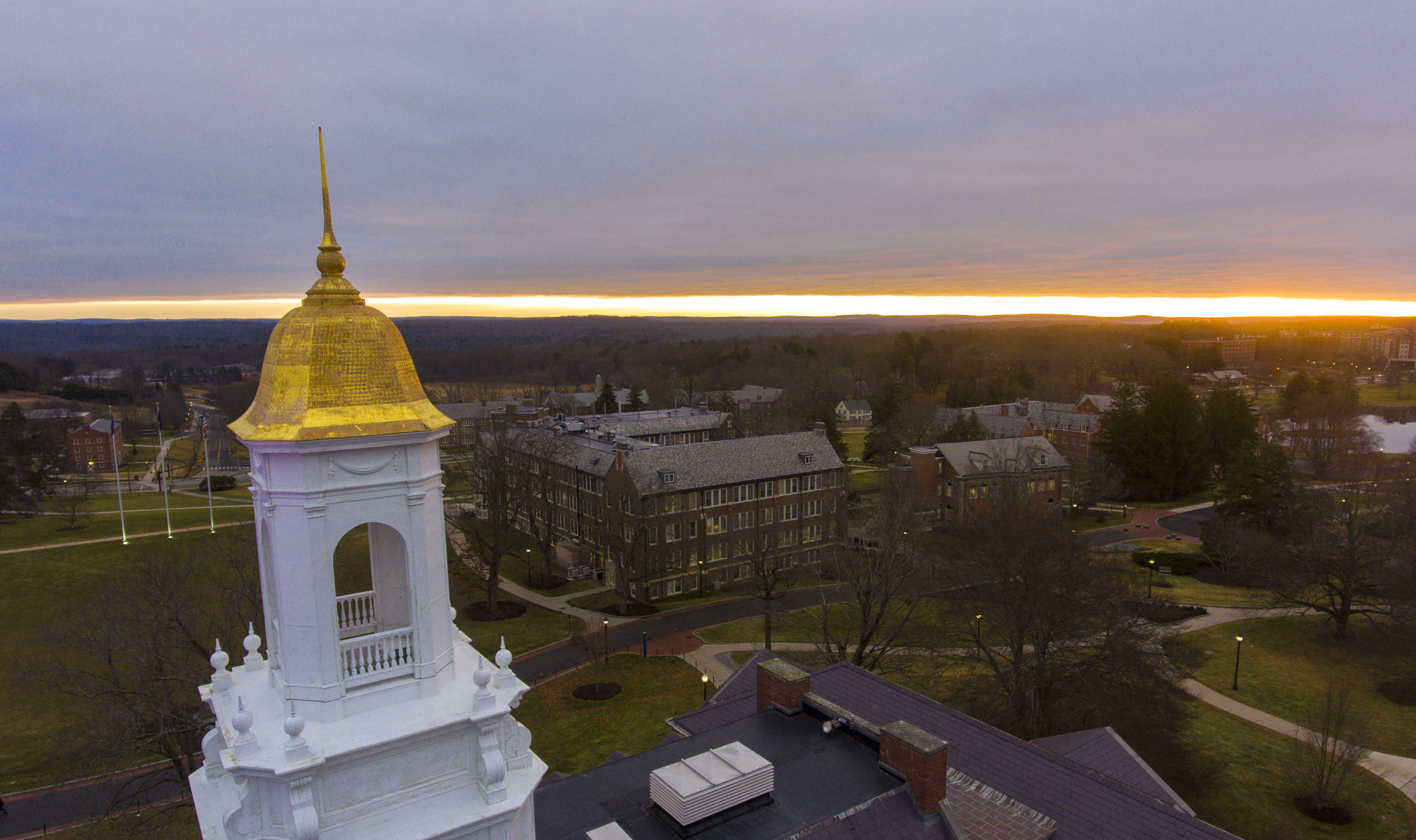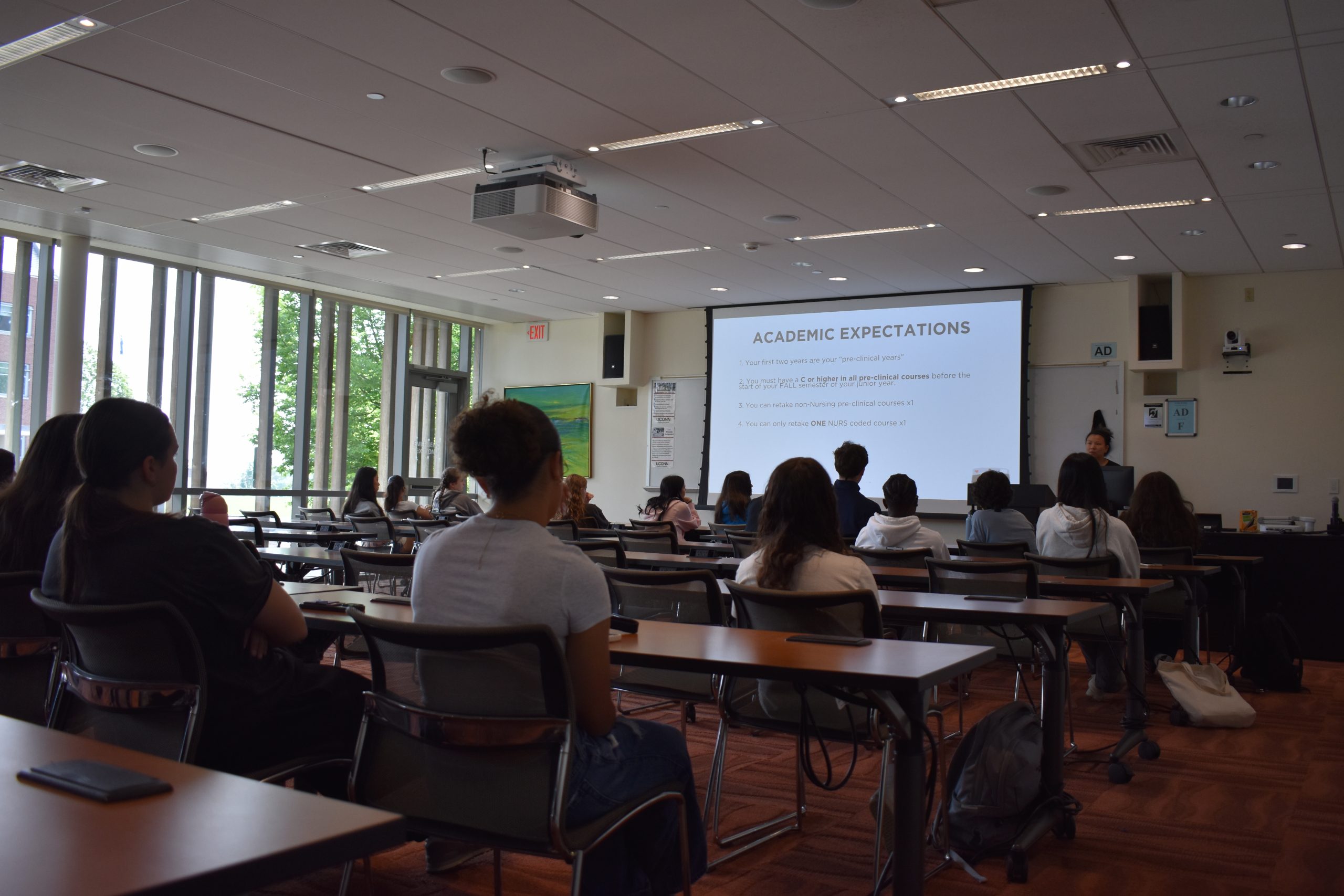A portion of UConn’s Depot Campus could become the home of the region’s first comprehensive research facility for autonomous vehicles and “smart cities” transportation planning under a proposal in the earliest stages of discussion.
The Connecticut Transportation Institute (CTI), which is part of the School of Engineering, and Promesa Capital LLC of Guilford have been developing a concept for a Connected and Autonomous Vehicle (CAV) test track and research facility at the University.
While many steps and approvals would be needed before it would become a reality, UConn’s Board of Trustees on Wednesday set the wheels in motion for further exploration by granting Promesa an option to buy 105 acres largely in the southwest portion of Depot Campus.
The option gives Promesa nine months, with the option of four extensions, to review the site’s suitability, conduct various testing and reviews, and seek zoning approvals with the Town of Mansfield. If Promesa meets the criteria and agrees to deed covenants to restrict the use for the intended purpose, UConn would sell the property for $5 million.
Promesa would use its own funding to build the approximately $30 million facility, which it has named Spectrum Park. UConn and possibly other compatible public and private entities would use the facility in their research and development initiatives in “smart cities” transportation planning, autonomous vehicle testing, energy systems research, and other fields.
Some portions of the 105-acre property front Routes 32 and Route 195, but the vast majority is to the east of that area cannot be seen from the roads.
The site was selected because it is close enough to other parts of UConn Storrs and the Depot Campus to be convenient for researchers, but remote enough that the facility could be designed and operated in a way that would be unobtrusive.
Eric Jackson, director of the Connecticut Transportation Institute and an associate research professor of civil and environmental engineering, said they envision a space in which research, development, and education would take place on transportation technologies, new ideas for mobility in cities, and related topics.
“We hope to spin off and inspire some startup companies, while also connecting with global companies that can use this facility to demonstrate, test, and research their products,” Jackson said. “We want this to be an open space for learning and sharing of ideas to improve safety, efficiency, resiliency, and sharing of data and ideas.”
It would become a real-world laboratory for undergraduate and graduate students to join faculty in research. It also has the potential to boost economic development in Mansfield and the region if new technologies are spun off into local companies or generate licenses, patents, and contracts.
“Mansfield as a community is committed to smart economic development, sited in the right place, that is environmentally responsible and leads to job creation. This kind of enterprise will also help keep our young people in Connecticut and in Mansfield,” says Mansfield Mayor Toni Moran. “In addition, it will allow businesses to take advantage of the economic incentives and other benefits associated with locating in a federally designated Opportunity Zone.”
In addition to the research aspects, the facility also would have a track on which autonomous vehicles could be tested. Jackson said the testing is just one of the many opportunities this facility would allow as part of the broader project of envisioning “smart city” transportation planning.
“Smart city” research and the transportation planning related to the field are among several emerging fields in which UConn is working to become a national leader, and they dovetail naturally with its studies in energy systems, sustainability, and related topics.
“We want to be able to train the public and municipalities on the latest technology, and how to install and maintain the transportation systems of the future,” Jackson said.



